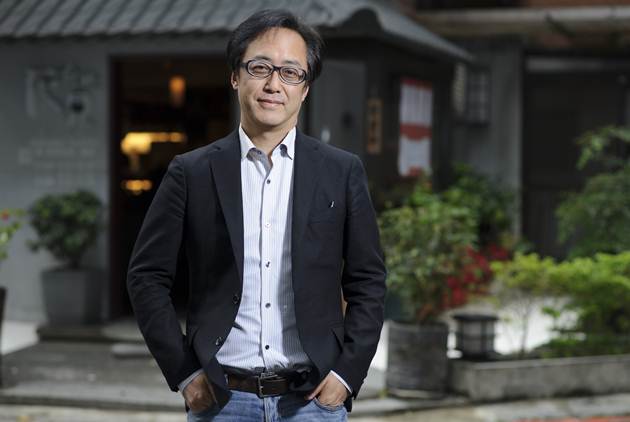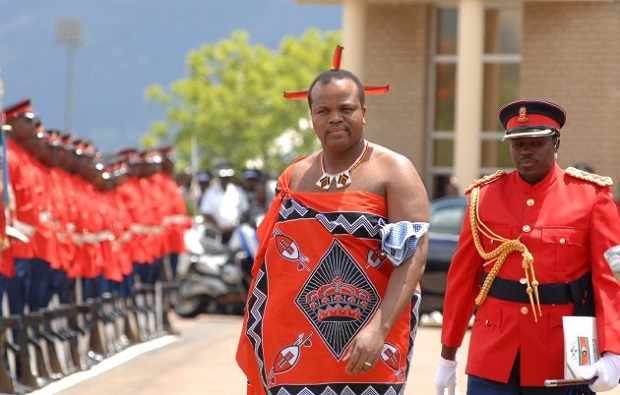Nojima Tsuyoshi
No International Recognition, No State?

Source:Ming-Tang Huang
With the severance of diplomatic relations between El Salvador and Taiwan, the circle of Taiwan’s diplomatic allies continues to shrink. The predicament of Taiwan’s diplomatic isolation is well known. And while we cannot lay all the blame for the situation at the government’s door, just invoking the mantra “Taiwan won’t lose” [the diplomatic showdown] will certainly not do the trick.
Views
No International Recognition, No State?
By Nojima Tsuyoshiweb only
After El Salvador’s defection, Taiwan is left with only 17 diplomatic allies. While the government of President Tsai Ing-wen has been trying to prevent a derecognition domino effect, as many as five countries have severed diplomatic ties with Taiwan since the Tsai administration took power [in May of 2016].
(Read: President Tsai’s Statement on Termination of Diplomatic Relations with El Salvador)
Given that Taiwan’s voters elected an administration that does not recognize the so-called 92 Consensus, it is foreseeable that they will react to the current situation with a frustrated sigh, saying “yet another one.”
Africa used to be Taiwan’s diplomatic stronghold, but now only the rather unknown country of eSwatini (formerly known as Swaziland) remains. In Latin America, only Paraguay is left, and then there are a few island states in the South Pacific and the Caribbean Sea.
 eSwatini is the only African country that has full diplomatic relation with Taiwan. (Photo: Ming-Tung Huang)
eSwatini is the only African country that has full diplomatic relation with Taiwan. (Photo: Ming-Tung Huang)
I went to Palau this spring to interview the island state’s president. At the time, he stated that Palau is willing to maintain its diplomatic relations with Taiwan. Palau is quite an important country for Japan and the United States, and its diplomatic relations with Taiwan are comparatively safe. But aside from Palau, any “change of direction” [meaning switching diplomatic recognition from Taiwan to China] by any country any time would not trigger much consternation.
A Call for New Values
Before the 1990s, Taiwan’s diplomatic recognition continued to increase. Back then, Taiwan was more affluent than China, and, as the rumor goes, merely the diplomatic recognition of Taiwan earned a new ally an “earnest money deposit” worth several hundred million or even several billion New Taiwan dollars.
Such funds were also said to have contributed to corrupting some of the respective partner governments, and Taiwan was forced to keep paying financial assistance to consolidate its relations while also facing unreasonable requests for huge amounts of money from various countries. One can imagine how extremely difficult things for Taiwanese diplomats.
No conclusion has been reached yet as to whether El Salvador actually broke off relations with Taiwan because the island was not willing to fund a port development project. But Taiwan will have great trouble taking the moral high ground in criticizing El Salvador’s severance of diplomatic relations, since China employs the same approach as Taiwan did in the past. Any country will pick allies that offer the greatest advantages to achieve its maximum interests. In political science, this is known as rational behavior.
(Read: Dominican Republic Says Adios)
During the Ma Ying-jeou administrations [2000 - 2008], China did not push for greater diplomatic recognition out of consideration for Taiwan, but the situation is different now. In terms of the size of its economy and the scope of its assistance, Taiwan is no match for China. Therefore, it would not be fair to put all responsibility for broken diplomatic relations on the Tsai government and her Democratic Progressive Party (DPP).
The problem is that, in the wake of successive defections, the Tsai government seems to have failed to come up with new values regarding Taiwan’s diplomatic environment that could let Taiwanese society realize that it needs to adjust to a new era.
Each time a country breaks off diplomatic relations, government officials address a press conference with a stern expression, expressing their regret and criticizing China while emphasizing that “Taiwan will not lose” [the diplomatic battle].
It feels like watching the same scene in a movie over and over. But these statements are not enough. If Taiwanese society is unsettled because of these developments, it means that Taiwan’s rulers have failed to provide clear explanations to their citizens, and that they are not able to state how the situation is to be understood.
Whether two countries have official diplomatic relations and whether the bilateral relationship comprises a wealth of substantive contacts are two different questions. Taiwan and Japan severed diplomatic ties in 1972, and exchanges were temporarily put on the backburner.
But for the past two decades, Taiwan-Japan relations have seen very active private- sector exchanges because of mutual assistance in the wake of earthquakes, and mutual tourist visits also kept growing. The depth of exchanges exceeds the level of bilateral ties during the Chiang Kai-shek era before 1972. This shows that you can still do great things, that there is hope even under a “bilateral relationship without diplomatic recognition.”
Substantial Benefits more Important than Face
Moreover, Taiwan’s avenues for economic participation in the international community are all but blocked. If a small country needs international recognition, this is virtually a question of face. Countries need to consider face, but more importantly, they need to obtain substantial benefits for their people. Taiwan participates in the World Trade Organization (WTO) as a “customs territory”, and using this status to aggressively push for free trade agreements (FTA) is an important direction.
Given that the Japanese government is taking a softer stance on the [envisaged] FTA between Taiwan and Japan (known as the economic partnership agreement, EPA), and the Tsai government is hoping to complete it within its current term, the agreement also has inherent value.
Of course, for Japan, the Taiwan-Japan FTA poses some difficulties in terms of regulatory response, while Taiwan faces the problem of food imports, so the pact won’t become reality within one or two years. But the fact that both sides have launched formal preparations toward that goal is encouraging news for the Taiwanese people.
When I lecture at Japanese universities or give speeches across the country, I always ask the audience: “Do you think that Taiwan is a state?” Over time, Chinese propaganda has had the effect of making many Japanese think that Taiwan is not much of a state. In response to my question, usually about one third of the listeners raise their hands to support the option “Taiwan is not a state”. Subsequently, I will ask them, “Then, which essential conditions must be met to constitute a state?”
A State Lacking Diplomatic Recognition
Taiwan has all of the [essential] elements that make a state – population, territory, government and sovereignty. On top of these, Taiwan has its own military, independently issues its own currency, and democratically elects its national leaders. The only thing it lacks is international recognition. In that sense, allies are indeed extremely important.
However, regarding international recognition, it is impossible for Taiwan to change the status quo relying solely on its own efforts. Since withdrawing from the United Nations in 1971, Taiwan’s diplomatic situation has been grim and will most probably remain so in the future. But this does not mean that Taiwan is not a state; we could only say it is a “state that lacks international recognition.”
At the very end of my lectures, I always tell the audience: “Although there is insufficient international recognition, we can not determine that Taiwan is not a state because of that. During the occupation after the war, Japan also failed to gain international recognition. But was Japan therefore not a state back then? This wasn’t the case at all. The same goes for Taiwan.”
No one is criticizing Taiwan for its tough diplomatic dilemma. On the contrary, Japan and other countries harbor sympathy and encouragement. Will President Tsai come up with a response to our neighboring countries’ sentiment and propose a brand-new vision for the Taiwanese people? Isn’t that what the Taiwanese are waiting for? I, for my part, have very high expectations.
Translated from the Chinese Article by Susanne Ganz
Edited by Shawn Chou
Other articles from the author
♦ Circle Taiwan With a Bike — A New Trend for Japanese
Additional Reading
♦ Taiwan Shouldn’t Feel Inadequate Compared to China
♦ A Taiwan-Made Video Widely Shared in Kosovo
♦ President Tsai's Statement on Termination of Diplomatic Relations with El Salvador







